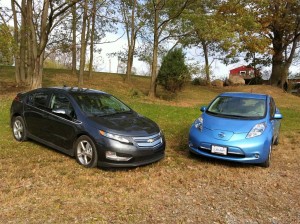Despite clear concerns, even outright misgivings, auto industry leaders expect to see a steady ramp-up in spending on automotive electrification in the years ahead, that money going to everything from motors to battery packs and other technologies.
But the survey by consulting firm KPMG expects a relatively slow rise in the actual sales of electric vehicles, the various technologies such as hybrids, plug-ins and full battery-electric vehicles (or BEVs) expected to account for barely 15% of the overall market by 2025.
And the survey finds industry leaders plan to hedge their bets by exploring alternatives to electrification. Fuel cell technology, for one, is expected to see increased investment according to 65% of those who participated in the study. But, significantly, the executives still believe that the greatest potential will come from optimizing the time-tested internal combustion engine.
“What’s interesting is that automakers are placing bets across the board, and large bets at that, because no one knows which technology will ultimately win the day with consumers,” added Gary Silberg, KPMG’s national automotive industry leader.
Electric vehicles went from a mere curiosity to the focus of intense industry interest over the last several years, with 2011 seeing the introduction of the first serious offerings from major manufacturers – including the Chevrolet Volt plug-in, and the Nissan Leaf and Mitsubishi i battery-electric vehicles. This year will not only see those makers ramp up production but others enter the fray, including Ford, Honda, Toyota and start-ups like Fisker Automotive and Tesla Motors.
Skeptics abound, some suggesting the technology has already failed by pointing to total sales of 17,832, according to AutoData – less than December’s total sales of the Honda Accord. Even conventional hybrids, such as the Toyota Prius, generated sales of just 274,927 last year, about a full year’s pace for the Accord and only slightly more than General Motors sold last month. Add all battery-based vehicles together and they captured just over 2.1% of the overall U.S. automotive market in 2011.
How much that will grow is a matter of intense debate and calls for a number of assumptions, including technical breakthroughs and the role of government mandates and incentives. Ford product czar Derrick Kuzak, for example, tells TheDetroitBureau.com that his company expects anywhere from 10% to as much as 25% of the market to consist of battery-based vehicles by 2020, three in four of those conventional hybrids.
According to the KPMG survey, the collective industry estimate is about 15%, with execs in North America and Europe among the least optimistic, predicting the adoption rate will be somewhere between 6% and 10% on a global basis by 2020.
But spending will ramp up sharply, almost everyone seems to agree:
- 83% of the executives plan to increase spending on electric motors;
- 81% see more being spent on battery technology;
- 76% see an increase in spending on power electronics; and in a sign they want to cover all the bases,
- 65% predict spending will increase on fuel cell technology.
Notably, after initially cutting back on hydrogen-based research support early on, the Obama Administration has begun to funnel money back into fuel cell R&D.
“The industry faces a tough decision about whether to place more trust and resources in fuel cell or battery vehicle concepts, and these results show that it’s way too early to call right now,” Silberg noted.
Based on the current energy mix, the KPMG survey found, 61% of the industry executives still believe the downsizing or optimization of internal combustion powertrains still offers greater opportunity for reducing fuel consumption and CO2 emissions than any electric vehicle technology.

